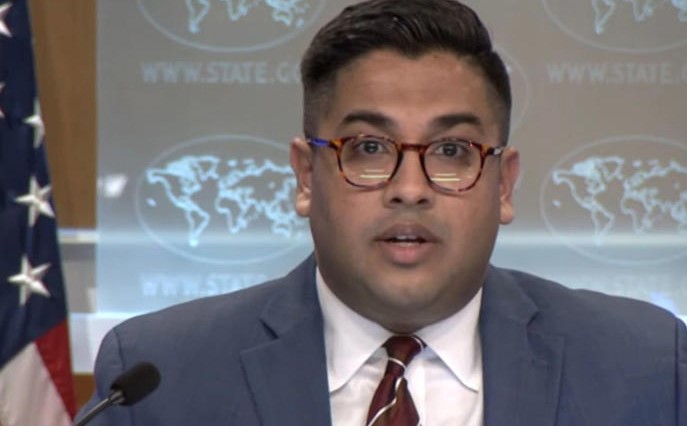US cites PM Modi in defense of immunity for Saudi Crown Prince over Khashoggi killing

The US government cited Prime Minister Narendra Modi as an example while defending its call to grant Saudi Crown Prince Mohammed bin Salman immunity from a lawsuit over his alleged role in the 2018 killing of journalist Jamal Khashoggi.
The declaration from the US State Department comes after the Crown Prince assumed the role of Saudi prime minister in September this year, thereby qualifying for protection from US prosecution as a foreign head of government.
“..this is not the first time that the United States has done this. It is a longstanding and consistent line of effort. It has been applied to a number of heads of state previously,” Principal Deputy Spokesperson for the US Department of State, Vedant Patel, said in a press briefing Friday.
He added: “Some examples: President Aristide in Haiti in 1993, President Mugabe in Zimbabwe in 2001, Prime Minister Modi in India in 2014, and President Kabila in the DRC in 2018.”
In 2005, the US denied a visa to Modi, who intended to travel to New York to address Indian-Americans at a rally in Madison Square Garden. The decision was based on then chief minister Modi’s alleged failure to control the 2002 Gujarat riots.
This visa ban was lifted in 2014, after Modi was elected Prime Minister.
Ahead of his four-day visit to the US in 2014, Modi was afforded the same protections from US courts that the Crown Prince may now be entitled to. At the time, Modi was a party in a lawsuit filed by a human rights group in a New York court for his alleged role in the 2002 riots.
It is worth noting though, that the Biden administration’s call to shield the Crown Prince from US courts is non-binding and it will ultimately be up to a judge to grant him immunity over his alleged role in Khashoggi’s killing.
The Foreign Sovereign Immunities Act (FSIA), enacted in 1976, provides that a foreign state is presumed immune from the jurisdiction of US courts. There are, however, nine exceptions to the FSIA, mainly commercial activities. For instance, lending and borrowing of money, the sale and purchase of goods, and leasing of property etc.
Also Read: US appoints another new interim envoy for India, but no full-time ambassador for past 22 months
Biden’s stance on Khashoggi killing
US President Joe Biden has been sharply critical of the Saudi regime and the Crown Prince with regard to Khashoggi’s assassination at the Saudi embassy in Istanbul in 2018.
Biden’s denunciation was a key point of difference between him and former President Donald Trump during the campaign trail in the run-up to the 2020 US presidential elections.
On 2 October 2020, the day marking two-years since Khashoggi’s killing, Biden had issued a statement explicitly accusing his killers of acting on the “direction” of the Saudi Crown Prince. “Two years ago, Saudi operatives, reportedly acting at the direction of Saudi Crown Prince Mohammed bin Salman, murdered and dismembered Saudi dissident, journalist, and U.S. resident Jamal Khashoggi,” the statement read.
The statement further promised that a Biden administration would reassess America’s relationship with the Saudi Kingdom, and ensure that the US “does not check its values at the door to sell arms or buy oil”.
The US State Department’s calls to afford the Crown Prince immunity also comes about a year after the Biden administration released a declassified intelligence report on Khashoggi’s death, which Trump refused to do.
The report alleged that the Crown Prince “directly approved” the killing of Khashoggi.
(Edited by Amrtansh Arora)







